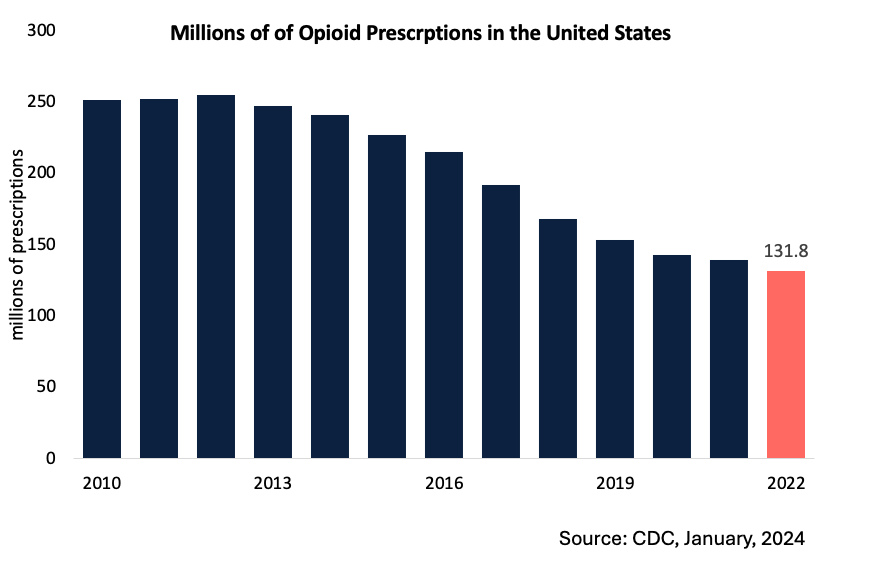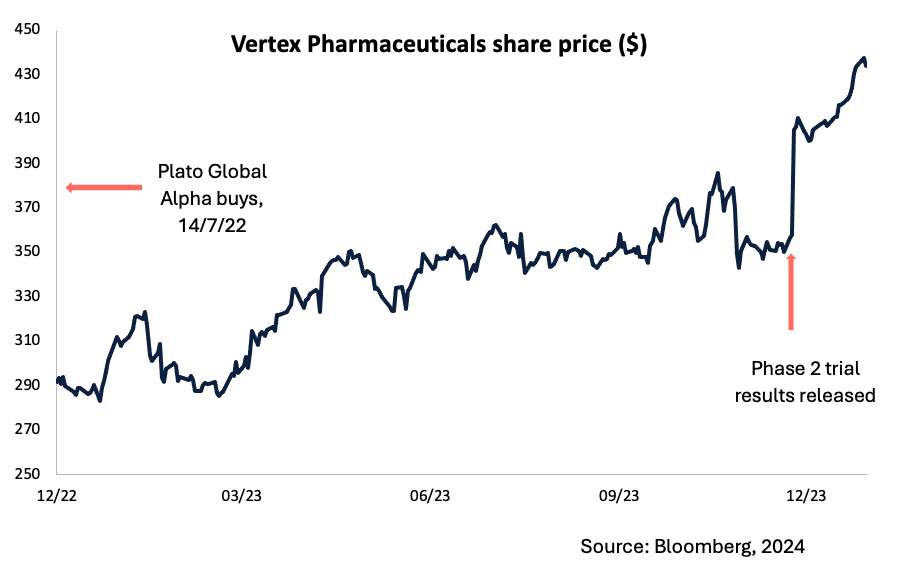Could this be the next Ozempic?
I still remember as a child my mum, a nurse, coming home from work and saying how heart-wrenching it was seeing young patients battle cystic fibrosis (CF).
CF, which causes severe damage to the lungs and other organs, is the most common genetically inherited life-threatening disease in Australia. As late as 1989, survival to 39 years was rare, and even by 2005, the life expectancy of someone with CF was just 27 years according to Monash University.
Today, life expectancy stretches into the 50s and beyond. A key driver of the improvement has come due to novel medicines that target the underlying genetic cause of CF.
Vertex Pharmaceuticals' (NASDAQ: VRTX) Trikafta medicine in particular has been a game changer for the treatment of CF. In Australia alone, Vertex generated over half a billion dollars with CF treatments, which is the second-highest government expenditure on any drug.
First ever approval for CRISPR gene editing technology
While Vertex is incredibly profitable, throwing off over $4 billion in free cash flow over the last twelve months, a valid concern was the company’s focus on a single condition.
In November however, Vertex Pharma’s sickle cell drug gained the first-ever approval for a therapy that uses the Nobel prize-winning CRISPR gene editing technology (The initial approval in the UK was quickly followed by approvals in Europe and the US). Rather than treating the symptoms of a condition, the therapy aims to cure it once and for all with a one-and-done treatment.
The approach holds out hope for a whole range of life-threatening genetic conditions.

The next Ozempic? Solving pain
There is yet another reason we are bullish on Vertex Pharmaceuticals (NASDAQ: VRTX)..
We have all seen on our screens how opioid addiction has laid waste to entire communities. Despite widespread awareness of the addictive potential of opioids, usage remains stubbornly high. In the US, 131 million prescriptions were written in 2022, equating to 40 for every 100 persons.
Physicians are acutely aware that opioids are addictive and hazardous, however, there is often no effective alternative. Put simply, the world is crying out for an effective non-addictive treatment for chronic pain.

This area has been a graveyard for pharmaceutical companies in the past in much the same way as anti-obesogenic drugs failed time and again – until they didn’t.
Vertex has a drug in development, VX-548, that just came through phase two trials with flying colours. Unlike opioids, which affect the central nervous system, VX-548 blocks the transmission of pain in the peripheral nervous system and is non-addictive.
Incidentally, the drug Lyrica, heavily promoted by Pfizer is the most prescribed drug for pain in Australia with over three million prescriptions last financial year. This drug comes with a host of side effects including tremors, amnesia, and speech disorders. Moreover, it is addictive as reported in The Age and elsewhere.
In the phase two results released on the 13th of December, VX-548 reduced pain by 36-39% with no significant side effects. Not surprisingly, the stock price surged and is now up 21% adding almost $20bn to the stock’s value. The total addressable market is some $9 billion per year.
For full disclosure, Plato Global Alpha bought shares in Vertex in July 2022 and added to the position on the 6th December 2023. We retain our position in the company and eagerly await the results of further trials.

Learn more about the holdings in the Plato Global Alpha Fund
Dr David Allen is the Portfolio Manager of the Plato Global Alpha Fund.
Find more information on the Fund's portfolio holdings and strong track record of outperformance on the Plato Investment Management Website.
.png)
1 stock mentioned
1 fund mentioned

